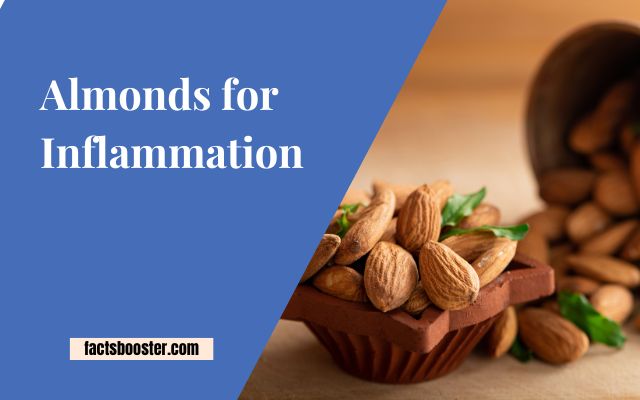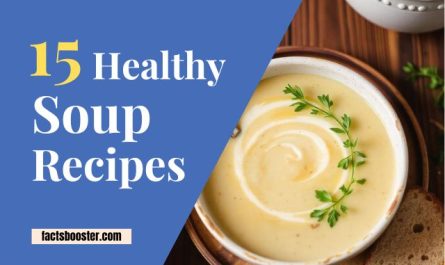As we navigate through the bustling aisles of health trends and diets, one golden nugget that’s increasingly gaining attention is the use of almonds for inflammation. This isn’t just another fad; there’s swelling interest, pun intended, in anti-inflammatory foods as allies in our battle against chronic inflammation.
Amidst this surge, almonds have emerged as more than just a snack. They’re at the forefront of fighting inflammation, demonstrating the undeniable power of diet in managing and potentially mitigating inflammation-related woes.
Key Takeaways:
- Almonds are increasingly recognized for their potential in reducing inflammation.
- There’s a growing interest in anti-inflammatory foods, highlighting the importance of diet in managing inflammation.
- Incorporating almonds into a balanced diet can be a strategic move in fighting inflammation.
Understanding Inflammation

Getting to grips with inflammation is key if you’re on the hunt for anti-inflammatory foods or aiming to use diet as a tool in fighting inflammation. At its core, inflammation is your body’s natural defense mechanism against injuries and infections.
This can be broken down into two main types: acute and chronic. Acute inflammation is the immediate, short-term response protecting and healing the body – think of the swelling and redness that follows a cut or scrape. It’s your body’s way of saying, “I’m handling this.”
Then there’s chronic inflammation, a sneakier, long-term response that festers quietly and can contribute to numerous health issues, including heart disease, diabetes, and arthritis. This type of inflammation can be provoked by factors such as stress, lack of exercise, and, crucially, diet.
Given its potential to undermine health significantly, chronic inflammation is a concern for health professionals and wellness enthusiasts alike, spotlighting the importance of anti-inflammatory food choices – like almonds – in our diets.
The Nutritional Profile of Almonds
When you’re looking into anti-inflammatory foods to help fight inflammation, almonds should definitely make your list. This nut is more than just a tasty snack; it’s packed with a variety of vitamins, minerals, and other nutritional components that can play a pivotal role in reducing inflammation.
First off, almonds are a great source of Vitamin E, a powerful antioxidant that helps protect your body against oxidative stress, a key player in the inflammation process. Additionally, they’re rich in magnesium and fiber, both known for their anti-inflammatory properties.
- Magnesium: supports over 300 biochemical reactions in the body, including those that regulate the immune system and keep inflammation in check.
- Fiber: crucial for maintaining a healthy gut, can help prevent the onset of diseases associated with chronic inflammation.
- Monounsaturated and polyunsaturated fats: found in almonds, these healthy fats are essential for fighting inflammation and promoting heart health.
Together, these nutrients make almonds a potent anti-inflammatory food, serving as a delicious way to help manage and reduce inflammation.
Read more:
Almonds for Inflammation
Recent research has brought to light the power of almonds in fighting inflammation, a common concern for many of us looking to maintain optimal health. Almonds, a simple yet potent anti-inflammatory food, have been studied for their effects on various inflammatory biomarkers.
Among these, C-reactive protein (CRP) and interleukin-6 (IL-6) stand out as key indicators of inflammation within the body. Studies have consistently shown that regular almond consumption can significantly reduce the levels of CRP and IL-6.
This finding is particularly relevant for anyone seeking to reduce inflammation through diet. Incorporating almonds into your daily routine might just be the edge you need to keep inflammation at bay.
By focusing on such anti-inflammatory foods, you’re not only enjoying delicious snacks but also actively contributing to your body’s overall wellness.
How Much Almond Per Day?
Moderation is key. You might be wondering, “How much almond per day?” The answer lies in striking a perfect balance; too little might not yield noticeable benefits, while too much could lead to unwanted effects.
Recent studies have honed in on the golden measure, recommending a dosage of less than 60g per day. This amount has been shown to beneficially reduce inflammatory biomarkers, such as CRP and IL-6, contributing to your fight against inflammation without overdoing it.
So, when planning your anti-inflammatory diet, consider this optimal serving size. By adhering to this guideline, you’ll be taking a substantial step forward in using almonds, a powerful anti-inflammatory food, to your advantage.
Incorporating Almonds into Your Diet
Adding almonds into your daily diet can be a delicious and easy way to fight inflammation. Almonds are not only a powerhouse of nutrients, but they also pack an anti-inflammatory punch, making them a smart choice for those of us looking to manage inflammation through our diet.
Here are some practical tips to seamlessly integrate these nutty delights into meals and snacks:
- Start your day with almonds: Sprinkle sliced almonds over your morning yogurt, oatmeal, or cereal. It adds a satisfying crunch and a dose of anti-inflammatory goodness right from the get-go.
- Snack smart: Keep a small bag of almonds at your desk, in your car, or in your bag. They’re the perfect on-the-go snack to curb hunger and provide a steady stream of energy, all the while helping to reduce inflammation.
- Almonds in salads: Add chopped almonds to your salads for a nutrient-rich crunch. They pair wonderfully with leafy greens and other anti-inflammatory foods like berries and olive oil, enhancing the flavor and health benefits of your meal.
- Creative cooking with almonds: Use ground almonds as a gluten-free substitute for breadcrumbs in recipes, or incorporate almond flour in your baking for an anti-inflammatory boost.
- Homemade almond milk: For a dairy-free alternative, try making your own almond milk. It’s simpler than you think and a great way to enjoy the anti-inflammatory benefits of almonds in smoothies, coffee, or cereals.
Remember, while almonds are an excellent food for fighting inflammation, moderation is key. Stick to the recommended amounts to ensure you’re reaping the benefits without overdoing it.
Considerations and Cautions
While almonds are indeed powerhouses when it comes to fighting inflammation, it’s important to approach their consumption with a bit of caution.
First off, not everyone can freely enjoy these anti-inflammatory foods without consequence. Nut allergies, particularly to almonds, are quite common and can range from mild to severely life-threatening reactions.
If you have a known allergy to tree nuts, it’s best to steer clear and consult with a healthcare provider for alternative anti-inflammatory food options.
Beyond allergies, there’s also the matter of moderation. While incorporating almonds into your diet can help reduce inflammation, there is such a thing as too much of a good thing.
Consuming more than the recommended amounts—which research suggests is less than 60g per day—may not provide additional benefits and could lead to digestive issues or calorie overload. It’s all about finding that perfect balance that works for your body.
Lastly, while the current research on almonds for inflammation is promising, it’s important to note that these studies have limitations.
Many are conducted on small or specific population groups, making it unclear how broadly these findings might apply. More research is needed across diverse groups to fully comprehend the anti-inflammatory benefits of almonds and establish comprehensive dietary recommendations.
So, while almonds can be a great addition to an anti-inflammatory diet, they aren’t a one-size-fits-all solution.
Bottom Line
In summing up, it’s clear that incorporating almonds into your diet could be a smart move for those of us fighting inflammation. With scientific evidence pointing to their ability to reduce key inflammatory markers like CRP and IL-6, almonds stand out as a potent anti-inflammatory food.
So, consider making these nutrient-rich nuts a staple in your balanced, anti-inflammatory diet to harness their full benefits. Taste and health can indeed go hand in hand.
References:
1. PubMed Central, 2023 May, “Almond Consumption and Inflammatory Biomarkers: A Need for Further Investigation” (1)
2. PubMed Central, 2017 Dec, “Nuts and Human Health Outcomes: A Systematic Review” (2)


